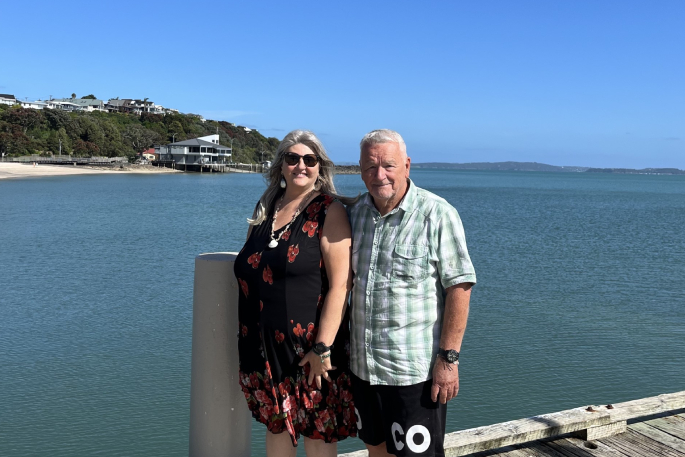The Heart Foundation is highlighting a critical issue affecting women's health: heart attacks.
Heart disease is the single biggest cause of death among women in New Zealand, claiming the lives of almost eight women every day.
Contrary to popular belief, women may not always experience the classic symptoms of a heart attack, such as chest pain or discomfort.
Instead, they may present with symptoms including shortness of breath, nausea, vomiting, backache, jaw pain, or extreme fatigue.
These differences in symptoms can sometimes lead to under-recognition and delayed treatment, putting women at greater risk of serious complications or death.
An international study published in 2020 concludes that women under the age of 55 can experience different heart attack symptoms to men.
The study looked at ten symptoms of a heart attack and the top symptoms experienced by both men and women were pain in the chest, jaw, neck, arm or back.
However, women presented with less chest pain and more sweating, dizziness and nausea than men.
Heart Foundation medical director Dr Gerry Devlin says too many women are dying from heart attacks as the warning signs aren’t recognised.
“Seeking medical attention promptly is crucial as early intervention can make all the difference in saving lives.
We encourage women to look after their hearts and get a heart check with their health practitioner as soon as they get any of these symptoms.”
Women without any known risk factors of heart disease are advised to get a heart check from the age of 55.
Women with known heart disease risks should be checked at 45; Māori, Pasifika and South Asian women are advised to go from age 40; and those with severe mental illness as early as 25 years old (their mortality rate is 2-3 times higher and cardiovascular disease is a major contributor to that).
A heart check will include having your blood pressure and cholesterol tested, going through your family history, and discussing smoking and other lifestyle factors.
The Heart Foundation will be putting the spotlight on women in the month of May in an awareness campaign aimed at educating New Zealanders about the signs and symptoms of heart attacks in women and encouraging women to look after their hearts.
They are also calling on kind-hearted supporters to donate and support further life-saving heart research, so more can be understood about heart disease.
Female heart attack survivor Raewyn Shaw has shared her story to encourage other women to be aware of their heart health.
 Raewyn Shaw (left) and partner. Photo supplied.
Raewyn Shaw (left) and partner. Photo supplied.
Raewyn had a horrifying experience out on the water when a routine swim became a battle for her life.
After gratefully receiving the help of two paddleboarders, her heart event led to a hospital stay.
“I’m not allowed to go out into the deep ocean to swim anymore,” she says.
“At least, not until they give me the all-clear. I don’t know if they ever will. I really love swimming and I love the ocean, so it’s taken a bit of adjusting to.”
Raewyn wants to stress that heart attacks can be a silent killer.
As she personally encountered, the common warning signs are not always present, and everyone’s experience varies. Getting a heart check-up early can save your life.
“I was 58 when I had my heart attack out on the water,” she says. “And so much could have gone wrong that day but it didn’t. Now I’m keen to make the most of my second chance at life.”
he Heart Foundation invests around $4 million every year in life-saving heart research to enable people with heart disease to live healthier lives.
Dr Devlin says through the Heart Foundation’s membership of the Global Cardiovascular Research Funders Forum, we are currently exploring the most urgent research needs for women’s cardiovascular health which will inform an exciting international research opportunity.
For more information about women's heart health visit heartfoundation.org.nz/your-heart/womens-heart-health.

.jpg)

0 comments
Leave a Comment
You must be logged in to make a comment.